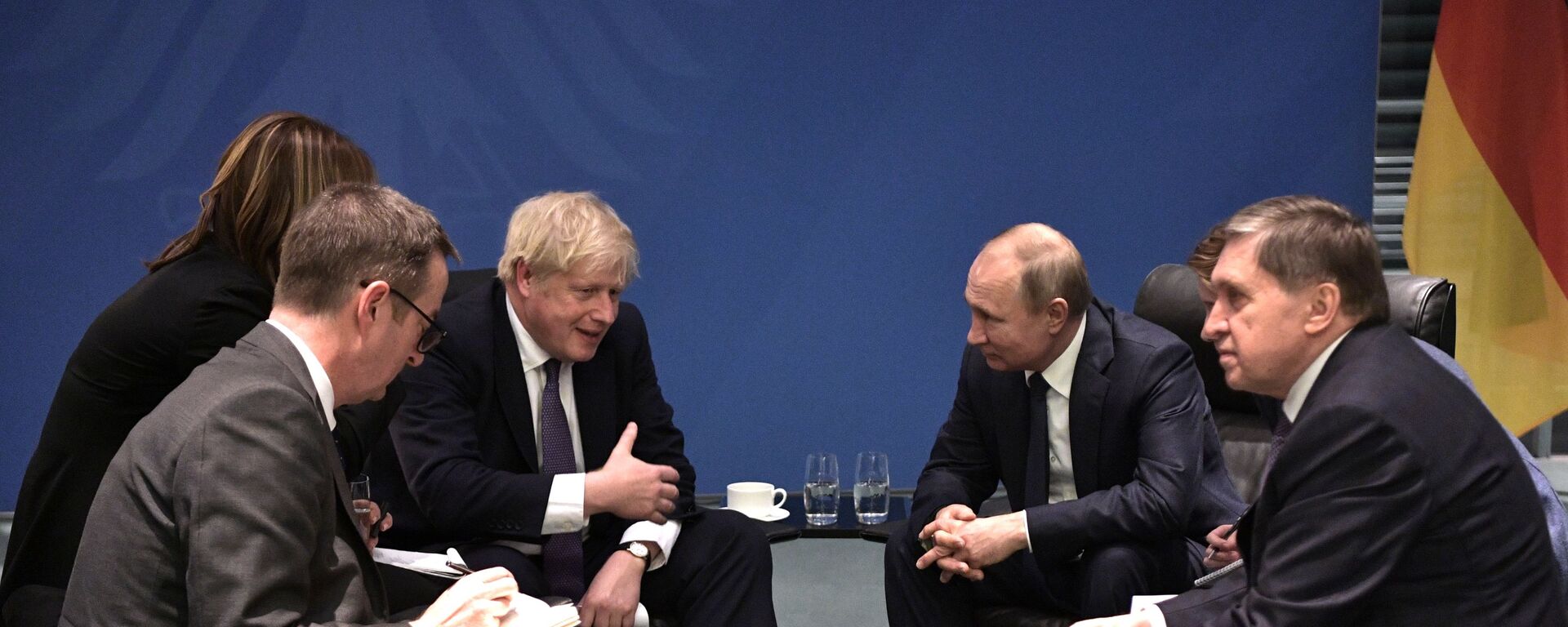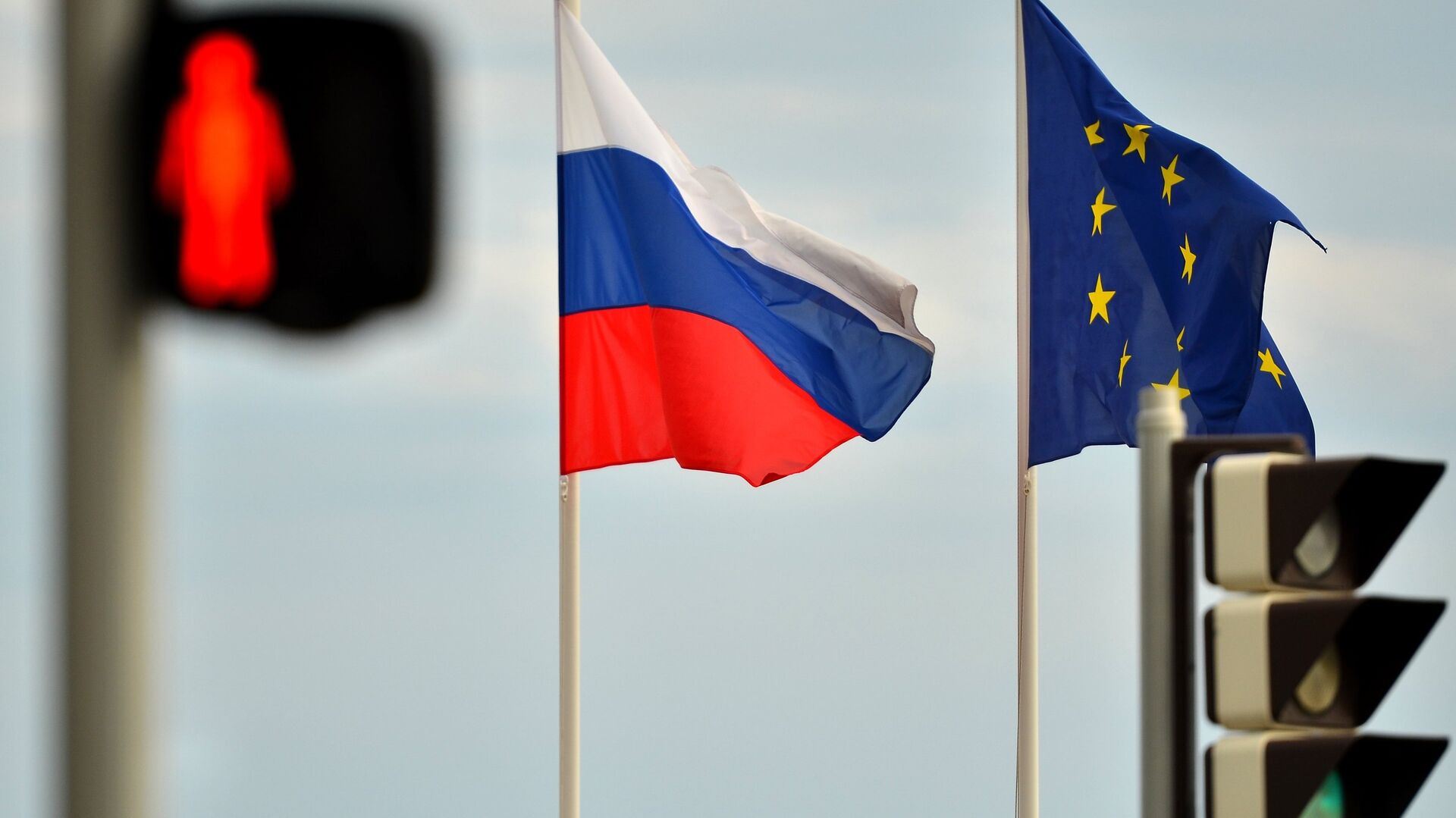https://sputnikglobe.com/20211215/major-eu-states-reportedly-oppose-sanctioning-russia-over-ukraine-invasion-want-to-focus-on-talks-1091539315.html
Major EU States Reportedly Oppose Sanctioning Russia Over 'Ukraine Invasion', Want to Focus on Talks
Major EU States Reportedly Oppose Sanctioning Russia Over 'Ukraine Invasion', Want to Focus on Talks
Sputnik International
As the claims of Russia allegedly planning to invade Ukraine continue to be hyped up in the media and Western political circles, G7 countries vow "massive consequences" in case the "invasion" scenario plays out.
2021-12-15T10:52+0000
2021-12-15T10:52+0000
2023-04-12T17:14+0000
europe
russia
ukraine
sanctions
european union (eu)
https://cdn1.img.sputnikglobe.com/img/102452/20/1024522069_0:164:3058:1884_1920x0_80_0_0_8f4845d318da54747dc8a5fc23a41d76.jpg
Leading European nations such as Germany, France, Italy, and Spain do not support the idea of sanctioning Russia over "aggression towards Ukraine", rather offering to focus on negotiations, Bloomberg reported Wednesday, citing unnamed senior diplomats and officials.Per the news agency, Berlin, Paris, Rome, and Madrid insist that before laying out "painful economic measures" against Moscow, the bloc should focus on the use of diplomatic tools. Yet, the sentiment of the leading EU states is not shared by other members, who argue that public threats of sanctions "would better deter" Russian President Vladimir Putin.Discussions of sanctions against Russia over the "invasion" fears continue, even though the Kremlin has repeatedly outlined that there are no such plans regarding its neighbour. However, there are concerns in Moscconcerning its "red lines", which include NATO's eastward expansion and deployment of offensive weapons in the countries neighbouring Russia.'Red Lines'Ukraine has recently lamented about Germany blocking the supply of lethal weapons to Kiev, saying that the West's strategy of "not provoking Russia" does not work. The complaints followed a report by CNN that the Biden administration ditched the idea of sending anti-tank weapons and surface-to-air missiles to Ukraine in a bid to not fuel tensions with Moscow.The importance of not crossing the "red lines" has been repeatedly underlined by many top Russian officials, including President Putin. Kremlin spokesman Dmitry Peskov said that the concept of "red lines" remains a "serious disagreement" between Washington and Moscow, even though Putin and his US counterpart Joe Biden held a video call to relieve the tensions around the situation on the Ukrainian border.Following the talks, which both presidents hailed as constructive and necessary, Biden said that he will convey Russia's concerns to America's allies during further meetings. Despite that, Moscow continues to receive warnings of "grave consequences" from the West in the event of the purported "invasion" of Ukraine. Most recently, these warnings were repeated by UK Prime Minister Boris Johnson during his talks with Vladimir Putin.Aside from this, White House press secretary Jen Psaki said there are plans on the table in Washington to send troops to Eastern Europe in the event the situation in Ukraine deteriorates - a statement immediately criticised by Russia as provocative.Amid the ongoing hype around the "invasion" narrative, the Kremlin continues to demand clear international legal agreements that would rule out NATO's expansion eastward or the appearance of weapons that pose a threat to Russia in neighbouring states - especially Ukraine.Kiev, however, is not eager to abandon the idea of joining the alliance and establishing closer connections with the European Union, asserting that Russia does not have a say in Ukraine's aspirations. These aspirations still face the reality of the bloc not rushing to accept new countries: in order to do that, every member state needs to vote yes, which is not something likely to happen yet. When it comes to Ukraine joining NATO, the alliance appears to praise Kiev's "cooperation", but refuses to provide any prospects about future membership. At present, Ukraine has not even received the so-called MAP - membership action plan.
https://sputnikglobe.com/20211213/putin-tells-johnson-about-need-for-negotiations-to-prevent-natos-expansion-eastward-1091492660.html
russia
ukraine
Sputnik International
feedback@sputniknews.com
+74956456601
MIA „Rosiya Segodnya“
2021
News
en_EN
Sputnik International
feedback@sputniknews.com
+74956456601
MIA „Rosiya Segodnya“
Sputnik International
feedback@sputniknews.com
+74956456601
MIA „Rosiya Segodnya“
eu sanctions against russia, g7 countries, russian invasion, will russia invade ukraine?, red lines, what are russia's red lines, negotiations between eu and russia, eu states oppose russian sanctions,
eu sanctions against russia, g7 countries, russian invasion, will russia invade ukraine?, red lines, what are russia's red lines, negotiations between eu and russia, eu states oppose russian sanctions,
Major EU States Reportedly Oppose Sanctioning Russia Over 'Ukraine Invasion', Want to Focus on Talks
10:52 GMT 15.12.2021 (Updated: 17:14 GMT 12.04.2023) As the claims of Russia allegedly planning to invade Ukraine continue to be hyped up in the media and Western political circles, G7 countries vow "massive consequences" in case the "invasion" scenario plays out. Moscow, however, has underlined that there are no such plans and the "invasion" allegations are nothing short of fake news.
Leading European nations such as Germany, France, Italy, and Spain do not support the idea of sanctioning Russia over "aggression towards Ukraine", rather offering to focus on negotiations,
Bloomberg reported Wednesday, citing unnamed senior diplomats and officials.
Per the news agency, Berlin, Paris, Rome, and Madrid insist that before laying out "painful economic measures" against Moscow, the bloc should focus on the use of diplomatic tools. Yet, the sentiment of the leading EU states is not shared by other members, who argue that public threats of sanctions "would better deter" Russian President Vladimir Putin.
Discussions of sanctions against Russia over the "invasion" fears continue, even though the Kremlin has repeatedly outlined that there are no such plans regarding its neighbour. However, there are concerns in Moscconcerning its "red lines", which include NATO's eastward expansion and deployment of offensive weapons in the countries neighbouring Russia.
Ukraine has recently lamented about Germany blocking the supply of lethal weapons to Kiev, saying that the West's
strategy of "not provoking Russia" does not work. The complaints followed a report by
CNN that the Biden administration ditched the idea of sending anti-tank weapons and surface-to-air missiles to Ukraine in a bid to not fuel tensions with Moscow.
The importance of not crossing the "red lines" has been repeatedly underlined by many top Russian officials, including President Putin. Kremlin spokesman Dmitry Peskov said that the concept of "red lines" remains a "serious disagreement" between Washington and Moscow, even though Putin and his US counterpart Joe Biden held a video call to relieve the tensions around the situation on the Ukrainian border.
Following the talks, which both presidents hailed as constructive and necessary, Biden said that he will convey Russia's concerns to America's allies during further meetings.
Despite that, Moscow continues to receive warnings of "grave consequences" from the West in the event of the purported "invasion" of Ukraine. Most recently, these warnings were repeated by UK Prime Minister Boris Johnson during his talks with Vladimir Putin.

13 December 2021, 17:15 GMT
Aside from this, White House press secretary Jen Psaki said there are plans on the table in Washington to send troops to Eastern Europe in the event the situation in Ukraine deteriorates - a statement immediately
criticised by Russia as provocative.
Amid the ongoing hype around the "invasion" narrative, the Kremlin continues to demand clear international legal agreements that would rule out NATO's expansion eastward or the appearance of weapons that pose a threat to Russia in neighbouring states - especially Ukraine.
Kiev, however, is not eager to abandon the idea of joining the alliance and establishing closer connections with the European Union, asserting that Russia does not have a say in Ukraine's aspirations. These aspirations still face the reality of the bloc not rushing to accept new countries: in order to do that, every member state needs to vote yes, which is not something likely to happen yet. When it comes to Ukraine joining NATO, the alliance appears to praise Kiev's "cooperation", but refuses to provide any prospects about future membership. At present, Ukraine has not even received the so-called MAP - membership action plan.




